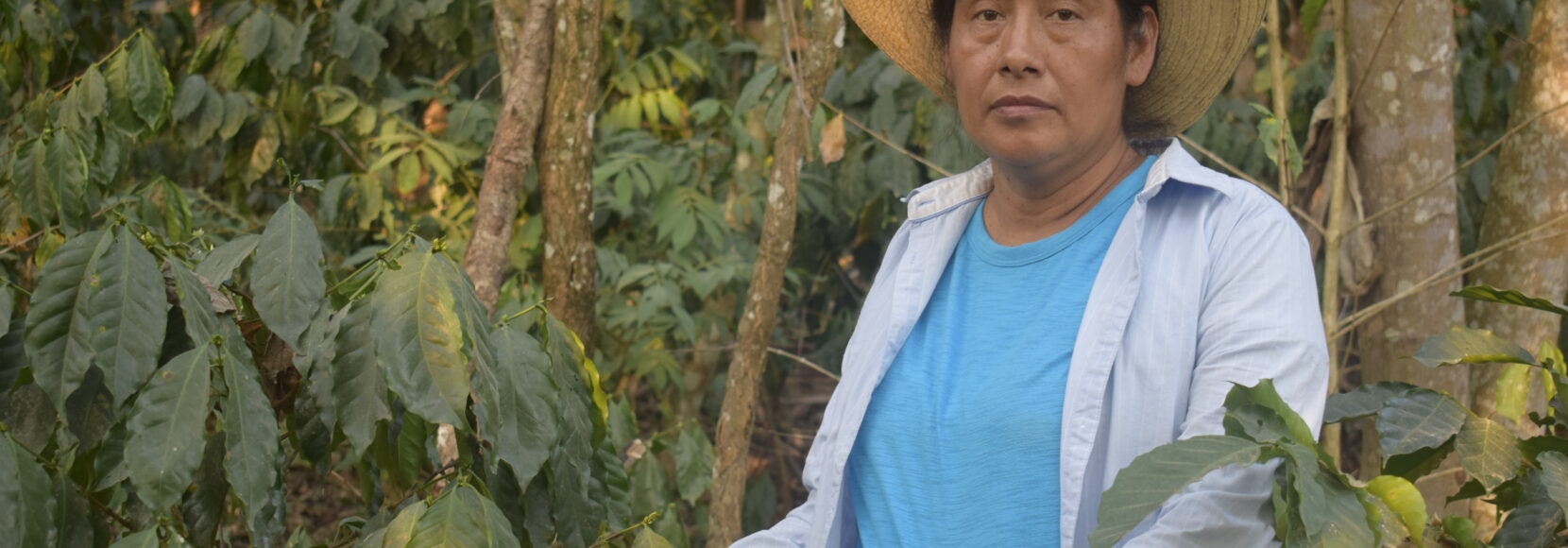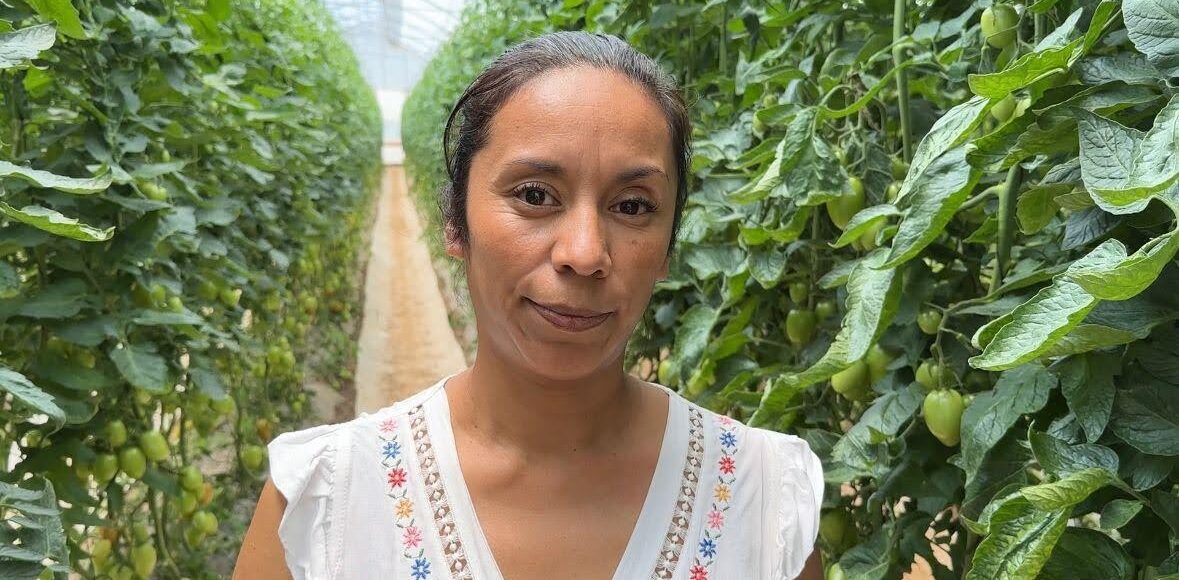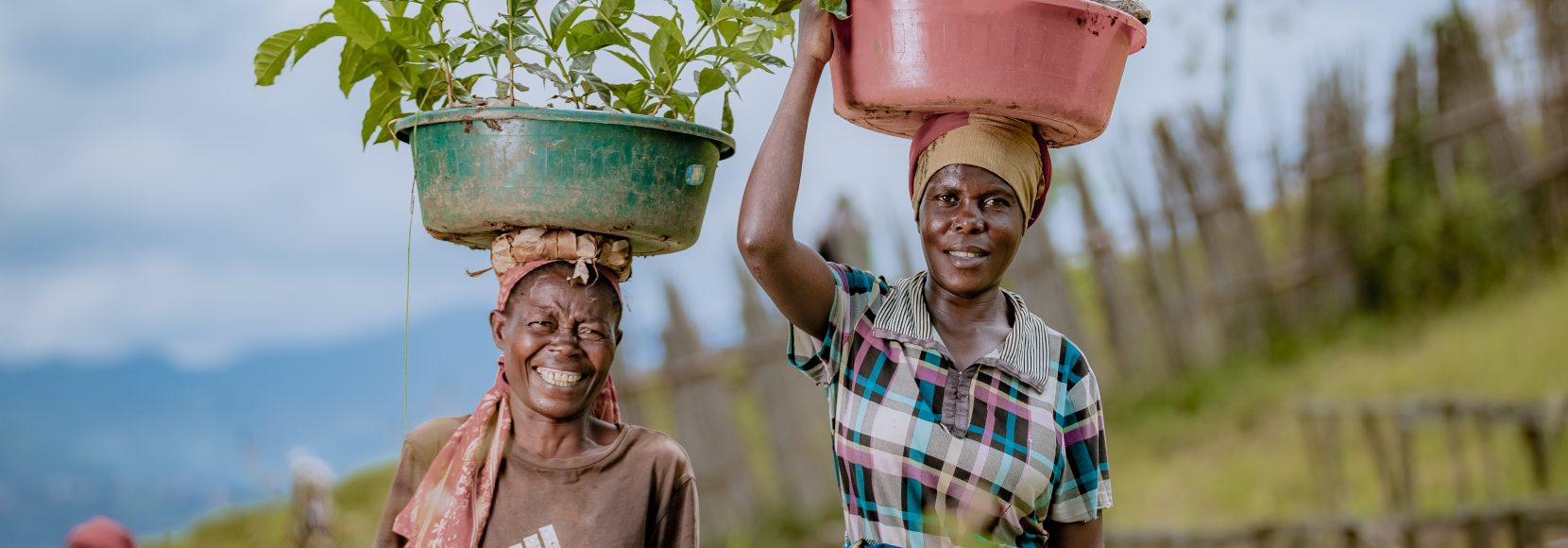
Introducing a New Mobile Application for Monitoring Coffee Farming Best Practices
TechnoServe recently developed a mobile application in partnership with the Government of Rwanda and the Bank of Kigali to address critical challenges in Rwanda’s coffee supply chain.
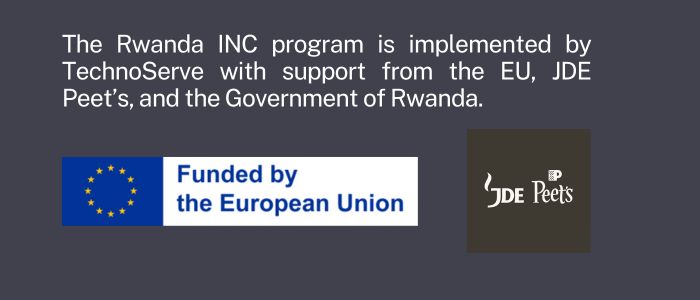
Rwanda is a small landlocked country in east-central Africa with a population of nearly 14 million people. After making significant progress in reducing poverty in the early 2000s, the country’s poverty rate has hovered around 50% for the last decade. Many Rwandans rely on agriculture for their livelihoods. Across the country, coffee production offers a pathway to new opportunities for more than 400,000 farmers and their families.
Coffee Farming in Rwanda
Rwanda boasts high altitudes, volcanic soil, and an ideal climate for growing high-quality coffee beans. Yet many coffee producers and farmers face significant challenges that limit their ability to earn a living from their coffee, such as low and unpredictable yields. These challenges are compounded at coffee washing stations – where raw coffee cherries are initially processed – because of inefficient operations and poor quality infrastructure, which further reduce the coffee’s value.
Rwanda has great potential to become a more prominent player in the specialty coffee industry if farmers can improve their coffee quality, access higher-value markets, and increase their incomes.
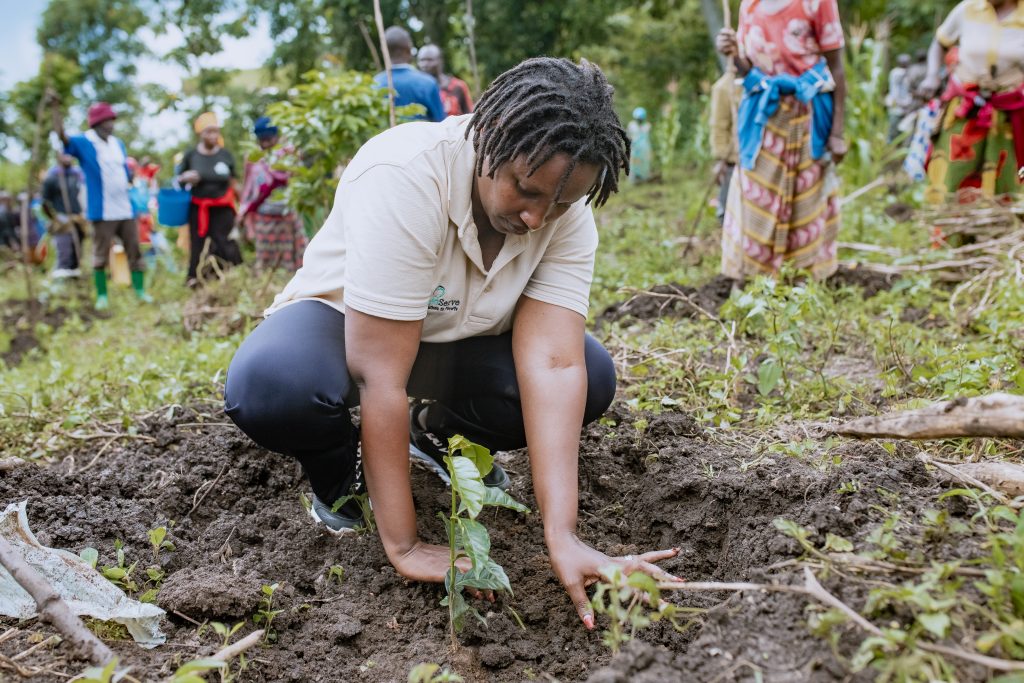
An Initiative to Support Coffee Farmers and Washing Stations
Since 2021, TechnoServe has worked to unlock the potential of Rwanda’s coffee value chain through Rwanda INC. The four-year initiative is funded by the European Union, JDE Peet’s, and the Government of Rwanda.
Rwanda INC is helping farmers, washing stations, exporters, and government regulators access the information and tools they need to provide high-quality, high-value coffee to local, regional, and international markets. The goal is to create a strengthened coffee ecosystem in Rwanda where all stakeholders, from farmers to exporters, work together to deliver high-quality coffee that consumers can taste in their morning cups.
A Mobile Application for Improved Data Collection and Decision-Making
A core part of developing this unified ecosystem is the Digital Farm Extension Monitoring System (DFEMS). DFEMS is a mobile application TechnoServe has developed in partnership with the Government of Rwanda and the Bank of Kigali to address critical challenges in the coffee supply chain.
DFEMS will help its users – predominantly wet mill agronomists and government extension agents – monitor coffee farming best practices throughout Rwanda. Through the app, users can register coffee farms in a centralized system that will store relevant data such as the number of coffee trees, coffee variety, and the age of trees on a particular farm.
A Database for Best Practices
As agronomists and extensionists go about their work, supported by the mobile application, they will be collectively building a unified database of coffee production and farming practices that will allow exporters and government regulators to make smart, informed decisions about the future of Rwandan coffee. In turn, learnings from this data will help these stakeholders provide the services and training to farmers that are most needed to further improve production and quality throughout the country.
The tool builds upon an existing system called the Smart Kungahara System (SKS), which was developed by BK Techhouse for the National Agriculture and Export Board of Rwanda (NAEB). SKS tracks the nationwide distribution of inputs such as fertilizers and seedlings. With the addition of DFEMS, information collected by local coffee agronomists will be integrated into the system, allowing coffee washing stations and exporters to access useful data. With field data collection tools and data dashboards, the app will highlight areas that need more support and investment to efficiently deploy extension resources and ensure informed decision-making.
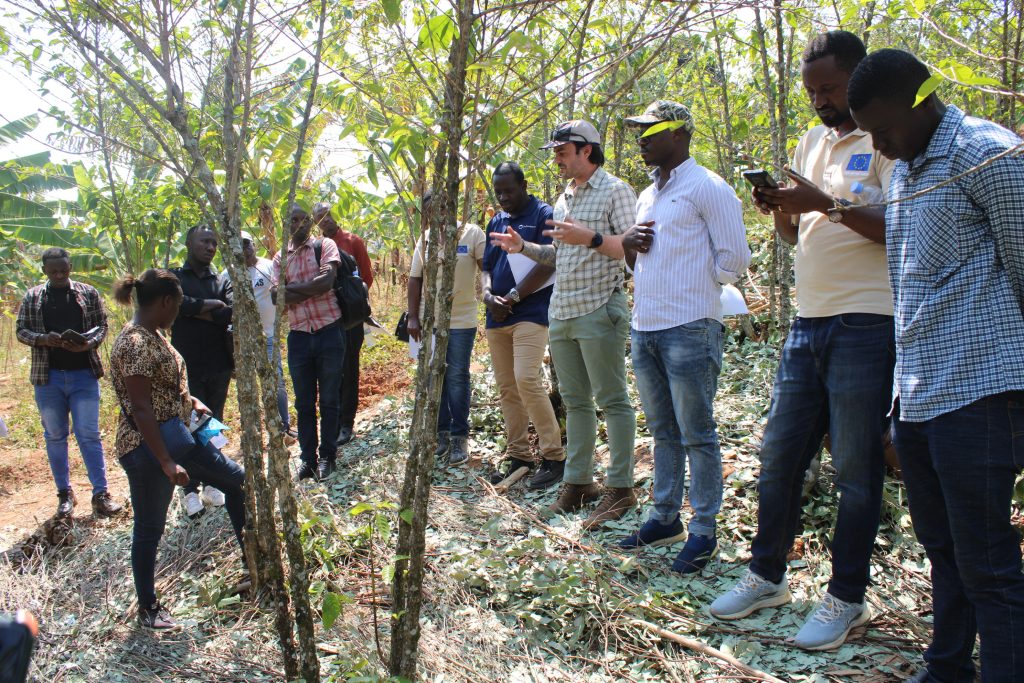
In 2022, TechnoServe piloted DFEMS with four coffee washing stations to gather initial learnings on the technology and usability. Then, in July 2023, the organization launched the tool to the 50 Rwanda INC-associated coffee washing stations. The launch included a two-day training event, which was attended by 50 coffee washing station staff as well as representatives from BK Techhouse and NAEB.
Over the two days, attendees got a full immersion into the app’s theory and practical usage through a classroom session and hands-on field training, using the tool to conduct farmer visits in nearby coffee-producing areas. After the launch event, all participating coffee washing stations had access to further support and training from field-based TechnoServe business advisors, who offered coaching and troubleshooting.
This has been a fantastic journey, and we at JDE Peet’s are really excited to see the launch of the DFEMS across all the 50 coffee washing stations that are part of this project. Thanks to technology and valuable data collection on coffee production and agronomy practices, we believe smallholder coffee farmers in Rwanda will benefit from improved technical assistance and much-needed services to further improve their livelihoods.” – Nadia Hoarau-Mwaura, Sustainability Director JDE Peet’s.
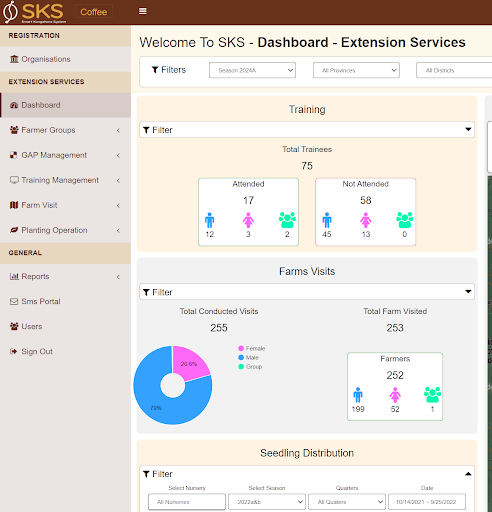
The Future of Coffee Farming in Rwanda
As DFEMS is adopted by more coffee washing stations and used for more farmer visits, the central database will grow in size and robustness, starting to provide coffee washing station managers with valuable insights into agronomist activities in their areas, for instance, farm visit scheduling and seeing farmer best practice adoption trends through back end dashboards.
The application also offers a standardized approach to conducting farm visits, ensuring a minimum standard. Farmers will benefit from a higher-quality level of support from their local agronomists, and coffee sector decision-makers will have access to more reliable, standardized information to guide decisions.
The ultimate owner and manager of DFEMS is the Government of Rwanda, as it will continue to grow within NAEB’s SKS system. This ensures the application is available to all Rwandan coffee stakeholders, and that all data is collected into a standardized central database, even after the Rwanda INC project closes out at the end of 2024. Throughout the final year of the program, TechnoServe staff will be working with the Government of Rwanda to further expand DFEMS adoption, transfer learnings, and ensure the stability and usability of the system.
As DFEMS grows to cover the full Rwandan coffee sector, it will unlock benefits for farmers, processors, exporters, regulators, and, ultimately, coffee consumers around the world who enjoy Rwandan coffee.
Editor’s Note: This publication was produced with the financial support of the European Union. Its contents are the sole responsibility of TechnoServe Inc. and do not necessarily reflect the views of the European Union.
Learn more:




